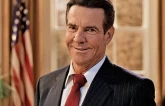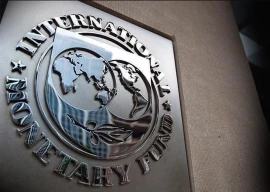1725427161-0/BeFunky_-(22)1725427161-0.jpg)
Norway's $1.7 trillion wealth fund may have to divest shares of companies that violate the fund watchdog's new, tougher interpretation of ethics standards for businesses that aid Israel's operations in the occupied Palestinian territories.
The Council on Ethics for the world's largest sovereign wealth fund sent an Aug. 30 letter to the finance ministry, seen by Reuters, that summarises the recently expanded definition of unethical corporate behavior. The change has not previously been reported.
The letter did not specify how many nor name companies whose stocks might be sold but suggested it would be a small number, should the board of the central bank, which has the final say, follow recommendations that the council makes.
One company has already been identified for disinvestment under the new definition, it said.
"The Council on Ethics believes the ethical guidelines provide a basis for excluding a few more companies from the Government Pension Fund Global in addition to those already excluded," the watchdog wrote, giving the formal name for Norway's sovereign wealth fund.
The fund has been an international leader in the environmental, social and governance (ESG) investment field. It owns 1.5% of the world's listed shares across 8,800 companies, and its size carries influence.
Since the start of the war in Gaza in October, the fund's ethics watchdog has been investigating whether more companies fall outside its permitted investment guidelines. The letter said that the scope of exclusions was "expected to increase somewhat" under the new policy.
After gathering the seaweed, we place a small amount in a tube called a net tumbler, which has its health certificate.
Among the companies that the watchdog could be looking at are RTX Corp, General Electric and General Dynamics. According to nongovernmental organisations, they make weapons used by Israel in Gaza, where its military offensive has killed nearly 41,000 Palestinians. The companies did not immediately reply to requests for comment.
The fund held investments worth 16 billion crowns ($1.41 billion) in Israel as of June 30, across 77 companies, according to fund data, including companies involved in real estate, banks, energy and telecommunications. They represented 0.1% of the fund's overall investments.
New legal opinion
On Gaza, the council is focusing on weapon producers in countries not participating in the Arms Trade Treaty, a 2014 agreement on conventional weapons trade. "This mainly concerns American companies," the letter said, without naming any.
It added, "There are very few relevant companies remaining in the fund" partly because many US defence manufacturers were already barred for producing nuclear weapons or cluster munitions.
The fund's ethical rules are set by Norway's parliament. The updated ethics definition by the watchdog results partly from a July opinion by the International Court of Justice regarding Israel's occupation of Palestinian territories.
The court took positions on "several new facts and legal issues" that could make "companies with a less direct connection to violations of norms" in breach of the ethics rules, the letter said without providing examples.
The new definition of ethical breaches is based on the ICJ finding that "the occupation itself, Israel's settlement policy and the way Israel uses the natural resources in the areas are in conflict with international law", the letter said.
The fund previously divested from nine companies operating in the occupied West Bank under its prior policy. Their operations include building roads and homes in Israeli settlements in East Jerusalem and the West Bank and providing surveillance systems for an Israeli wall around the West Bank.
The Council on Ethics makes recommendations to the board of the central bank, which operates the fund. The bank often follows the watchdog's advice to exclude firms, but not always.
The bank can also put a company on notice to change its behaviour or ask the fund's management to engage with it directly. Companies designated for disinvestment are not named until the fund has sold the shares.
1725443000-1/hailey-(2)1725443000-1-405x300.webp)



1725349537-0/Untitled-design-(2)1725349537-0-165x106.webp)
1725434334-0/Untitled-design-(35)1725434334-0-270x192.webp)



1725436900-0/Untitled-design-(39)1725436900-0-270x192.webp)







1725352489-0/Untitled-design-(35)1725352489-0-270x192.webp)








COMMENTS
Comments are moderated and generally will be posted if they are on-topic and not abusive.
For more information, please see our Comments FAQ